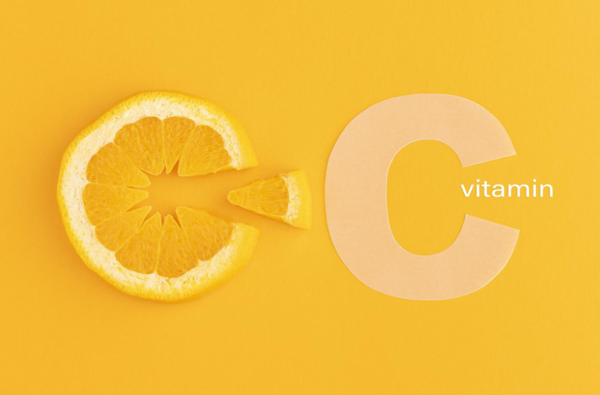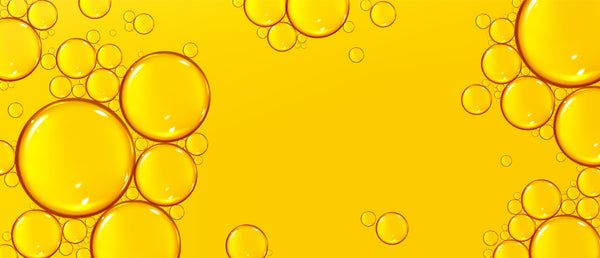Over the years there has been an increasing focus on the importance of protein in our daily diet.
We are surrounded with developments in the protein industry which range from protein powders, protein water and bars which are designed to fulfil your daily protein intake.
What comes to your mind when you hear the word “protein”? Probably chicken breasts, fish, or eggs, right? Well, that makes sense. Meat is one of the best sources of protein. However, it’s not the only one.
With recent discoveries in the nutrition industry, even vegans can get their share of protein without having to consume meat. How? Via plant protein. There are numerous reliable sources of plant-based protein that can offer the protein content your body requires to stay healthy. Read along to find more about them.
Top 10 Sources of Plant-Based Protein to Make you Healthy
1. Chia Seeds
If you’re health-conscious, you’d know how nutrient-dense chia seeds are. They help improve cognition and cholesterol and also reduce inflammation. But did you know chia seeds are a rich source of protein? Just two tablespoons of chia seeds contain about 3.5 grams of protein. Chia seeds contain 18 of the 22 amino acids, including all 9 essential amino acids
You can add chia seeds to a smoothie or ground them to powder,or sprinkle over your salad whichever way sounds tasty to you. Also, you can eat them raw.
2. Pumpkin Seeds
Pumpkin seeds are jam-packed with nutrients good for your health. They’re rich in antioxidants, omega-3 fatty acids, magnesium, zinc along with plant protein. Also, pumpkin seeds are complete protein as they contain all 9 essential amino acids.
To reap the benefits, you can add pumpkin seeds to a bowl of cereals, salad, or your favourite smoothie..
3. Spirulina
Spirulina is yet another amazing source of plant protein. It’s one of the few plant-based protein sources that contains about 70% protein by dry weight. Spirulina has the all essential amino acid distribution required of a complete protein. Just 2 tablespoons of spirulina offer you 8grams of protein, amazing, right?
You can add spirulina to your smoothie, juice, and vegetable soup and get the protein you need.
4. Tofu
Tofu comes with all 9 amino acids your body needs, along with minerals, fats, vitamins, carbs, and protein. A 100-gram serving of tofu contains about 17 grams of protein. You can easily replace cottage cheese with tofu and add it to your salad, gravies or scramble it or simply add some salt and consume it raw or grill it for added taste.
5. Quinoa
Similar to tofu, quinoa contains all the essential amino acids, which is why it’s also known as whole plant protein. One cup of quinoa contains around 8 grams of protein.
You can blend the quinoa in your smoothies, sprinkle it on salads, or use quinoa instead of rice. Refer to this link to find interesting ways to cook quinoa seeds.
6. Whole Rolled Oats
Most people think of only carbohydrates when it comes to oats. However, there’s a better variety of oats: whole rolled oats. This variety of oats comes with around 11 grams of protein per cup. Also, whole rolled oats contain all 9 essential amino acids making them a complete protein. So, make sure to include whole rolled oats to offer your body the protein it needs.
7. Peas
Along with being a good source of vitamin A, C, and K fibre, peas are also rich in protein. So much so that a 170-gram serving (1/2cup) contains about 4 grams of protein. Also, peas are commonly used in protein supplements. So, make sure to include them in your diet to offer your body the protein it needs.
8. Lentils
Lentils and other legumes are highly nutritious. Along with rich protein content, lentils also offer phytonutrients, minerals, vitamins, fibres, etc. So, you can consider lentils as a complete package for anyone looking for a nutritious diet.
As far as protein content is concerned, one serving of lentils can offer up to 9 grams of protein. You can soak lentils overnight or add them to your vegetable soup.
Pro Tip: While lentils on their own aren't a complete protein, you can make them complete by sprouting. When you sprout the lentils, all 9 essential amino acids become available.
9. Chickpeas
Chickpeas are a type of legume that contains iron, folate, phosphorus, and good protein content. Half a cup of chickpeas offers you 7 grams of protein, which is commendable. You can soak them overnight or roast them to consume them as a snack.
10. Hemp Seeds
Hemp seeds are highly beneficial. Because of their high fibre content, hemp seeds improve digestion and suppress appetite naturally, leading to healthy weight loss. Along with these benefits, hemp seeds are also a rich source of plant protein. And not just any source of plant protein. Hemp seeds have all 9 essential amino acids, which make them a complete protein.
You can eat the hemp seeds raw, roast them, or even cook them as you like.
These are some common plant-based sources of vegan protein that you can rely on. However, not everyone can gather time from their busy schedules to gather the right quantity of the above plant-based protein food sources. And this is when Superfood Plant Protein comes into the picture.
Superfood Plant Protein
Superfood plant protein is a blend of brown rice protein isolate, chia seed protein, and golden European pea protein isolate. It comes with a complete amino acid profile i.e. it has all the essential amino acids along with all the BCAAs or branched-chain amino acids.
Superfood Plant Protein also contains dietary fibre along with a digestive enzyme blend that ensures better gut health and digestion. What’s more, This vegan plant-based protein powder is crafted to offer you clean and complete nutrition for your holistic health with added antioxidants.
Here are the benefits it offers:
-
Boosts Metabolism
-
Builds Lean Muscles
-
Improved Endurance
-
Prevents Premature Ageing
Superfood Plant Protein comes in a tasty dark chocolate hazelnut flavoured powder form. Just add one serving to 250-300 ml of cold water or any other non-dairy beverage and enjoy a kick of protein. For the best benefits, consume it 30 minutes before and/or after your workout session.
Wrapping Up
Now that you know about different plant-based protein sources, it’s time to include them in your diet. However, if you can’t, opt for Superfood Plant Protein, which is probably the best and safest source of plant-based protein out there with better absorption.
References
Knez Hrnčič, M., Ivanovski, M., Cör, D., & Knez, Ž. (2019). Chia Seeds (Salvia hispanica L.): An Overview-Phytochemical Profile, Isolation Methods, and Application. Molecules (Basel, Switzerland), 25(1), 11. https://doi.org/10.3390/molecules25010011
Lorenz K. (1980). Cereal sprouts: composition, nutritive value, food applications. Critical reviews in food science and nutrition, 13(4), 353–385. https://doi.org/10.1080/10408398009527295
Angeli, V., Miguel Silva, P., Crispim Massuela, D., Khan, M. W., Hamar, A., Khajehei, F., Graeff-Hönninger, S., & Piatti, C. (2020). Quinoa (Chenopodium quinoa Willd.): An Overview of the Potentials of the "Golden Grain" and Socio-Economic and Environmental Aspects of Its Cultivation and Marketization. Foods (Basel, Switzerland), 9(2), 216. https://doi.org/10.3390/foods9020216
Wallace, T. C., Murray, R., & Zelman, K. M. (2016). The Nutritional Value and Health Benefits of Chickpeas and Hummus. Nutrients, 8(12), 766. https://doi.org/10.3390/nu8120766
House, J. D., Hill, K., Neufeld, J., Franczyk, A., & Nosworthy, M. G. (2019). Determination of the protein quality of almonds (Prunus dulcis L.) as assessed by in vitro and in vivo methodologies. Food science & nutrition, 7(9), 2932–2938. https://doi.org/10.1002/fsn3.1146

























